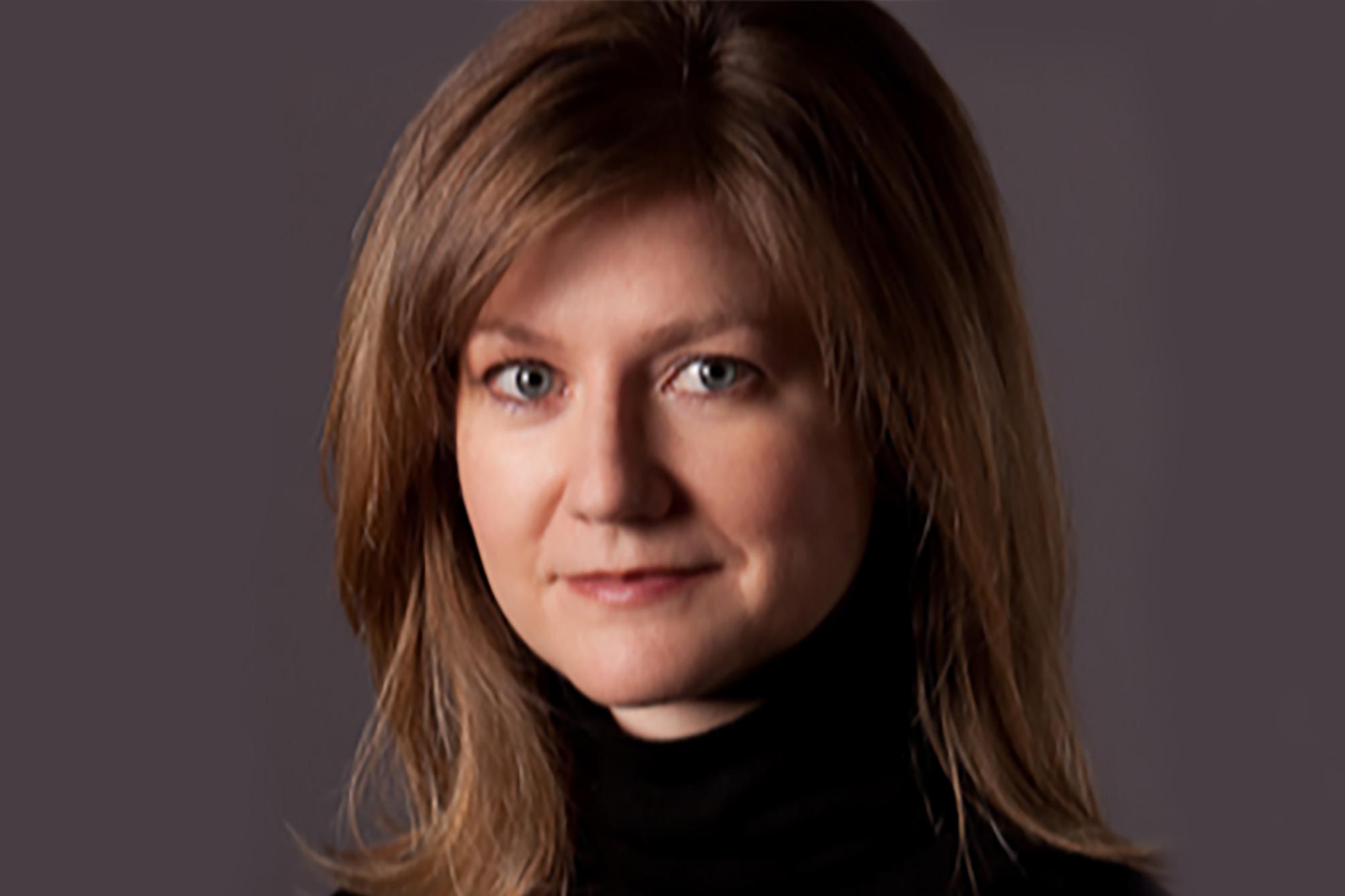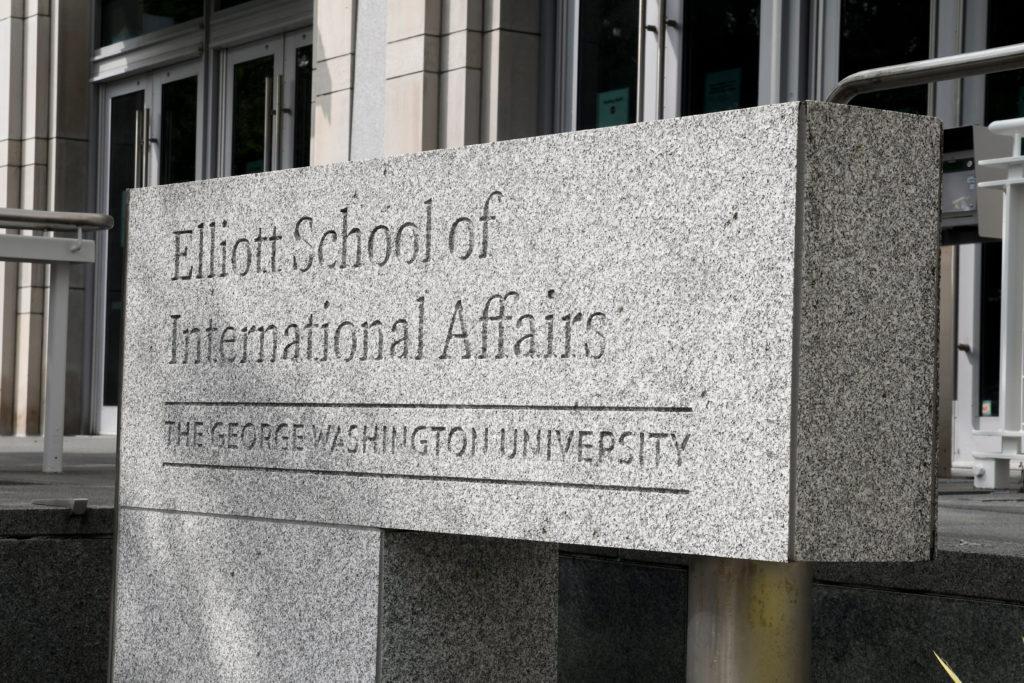Alyssa Ayres has spent her first year as the dean of the Elliott School of International Affairs focusing on student outreach and strategic planning for the school’s future.
Ayres said the Elliott School is currently in the middle of its strategic planning process, but she hopes to bolster its standing as a “top 10” international affairs institution as the school returns to in-person operations. She said she hopes to develop a strategic plan that will advance the school’s initiatives to diversify faculty and curricula this year, expand research and build continuing education programs for adults who previously discontinued their studies.
“Look around the world: the pandemic has only reinforced how connected we all are and highlighted the interconnections among international trade, national security, global health, the digital economy and so many other fields,” she said in an email. “This all makes international affairs concerns more visible and more relevant than ever.”
Ayres stepped into her position last January, replacing Ilana Feldman, a professor of anthropology, history and international affairs, who served as interim dean after spring 2020.
Feldman had filled in for Reuben Brigety, the Elliott School’s former dean, who introduced new programs and added a full-time diversity program manager position to the school during his tenure. During Brigety’s time in office, officials also launched the Institute for African Studies and hosted speakers like French President Emmanuel Macron.
As a part of her ongoing strategic planning, Ayres said she wants to build a new research center focused on international affairs and governance, expand the school’s continuing education programs and grow its outreach to U.S. and global policy communities. She said the strategic plan will expand upon the Elliott School’s mission, which aims to engage with public and policy communities, educate future world leaders and produce research and scholarship that builds an understanding of international affairs.

Courtesy of Alyssa Ayres
“We are still in the midst of strategic planning, but I am hopeful that we will be able to make some institutional changes to advance these priorities,” she said.
The Elliott School houses 11 research centers and institutes, which study international affairs in various regions, according to the school’s website. Foreign Policy magazine ranked the Elliott School as the seventh-best international relations program in 2018.
Ayres said she will use shared governance tactics through faculty town halls and monthly all-staff meetings to create the school’s strategic plan. She said she has had “regular conversations” with the dean’s council of elected faculty representatives and has held “Coffee with the Dean” sessions for any interested students.
“I really see our process of planning and goal-setting as something collaborative, developed through many conversations and refined further in the same way,” she said. “Following our structure of shared governance, we have regular conversations with faculty and leadership groups.”
Ayres said during the past year, she has led the Elliott School through a variety of diversity, equity and inclusion initiatives. She said she oversaw the launch of Inclusive Excellence Week, which surveyed community members on how to diversify the school, and formed the LGBTQ+ student group OUT in International Affairs.
“We owe it to our community to make sure that every Elliott School student who dreams of being a future leader in international affairs has the opportunity to do so,” she said in an email. “We will continue to do everything we can to make that possible.”
Officials released the school’s third diversity action plan this fall, which will upkeep existing structures like the school’s newsletter and funding for diversity fellowships, with the hopes of diversifying the school’s faculty and curriculum.
Ayres said Elliott School officials have added two new student scholarships – the Elliott Equity Fund and the Ambassador Edward “Skip” Gnehm Jr. Fellowship – to increase the school’s accessibility for students who may be struggling due to the pandemic.
“We want to raise more support for scholarships and fellowships, as well as nontuition support for transformative experiences such as internships or study abroad that may not be possible without assistance,” she said.
Ayres said she got a new puppy, Kokum, which has taken up her time outside of the Elliott School during her time as dean. She said she’s been attending obedience training with Kokum and eventually wants him to become a therapy dog.
Faculty said Ayres’ meetings with professors and attention to their accomplishments through attendance at events and assistance with networking have demonstrated her passion for collaboration with faculty. They said they hope the Elliott School maintains transparency about school operations, increases enrollment and continues to build the school’s reputation as a prestigious international affairs school under Ayres’ leadership.
Edward Gnehm, a professor of Gulf and Arabian Peninsula affairs, said Ayres has taken feedback from faculty before she “takes action” on new initiatives or decisions. He said Ayres also reaches out to individual faculty members over their academic work like book launches and research panels.
“By personal engagement, I mean she reaches out to individual faculty,” he said. “When an individual faculty has a notable experience or event, such as a book launch or an interview, she is ever ready to be a part of that, and she often moderates the panel or introduces the panel or moderates the book review.”
Gnehm said Ayres has connections to experts and policy leaders currently working in the field of international affairs, including ambassadors, whom she can introduce to Elliott School faculty. He said Ayres has taken steps to improve the Elliott School, bolstering its connection with popular departments in the Columbian College of Arts and Sciences like history, political science and economics.
“I think, with her enthusiasm and her personal commitment, that we’re going to see the school become even more known as a premier school of international affairs,” he said. “I think it already is, but I think she’s going to take it to new heights.”
Deepa Ollapally, a research professor of international affairs and the associate director of the Sigur Center for Asian Studies, said she hopes to see a significant increase in the diversity of the Elliott School’s faculty during Ayres’ tenure. She added that Ayres has been “accessible” to faculty throughout her tenure, and Ayres gave a presentation at a conference panel she organized last spring.
“Dean Ayres came into her position in the middle of the pandemic,” she said in an email. “She’s handled the affairs of the school extremely well despite this extra challenge. I would say she’s had a remarkably steep learning curve.”








